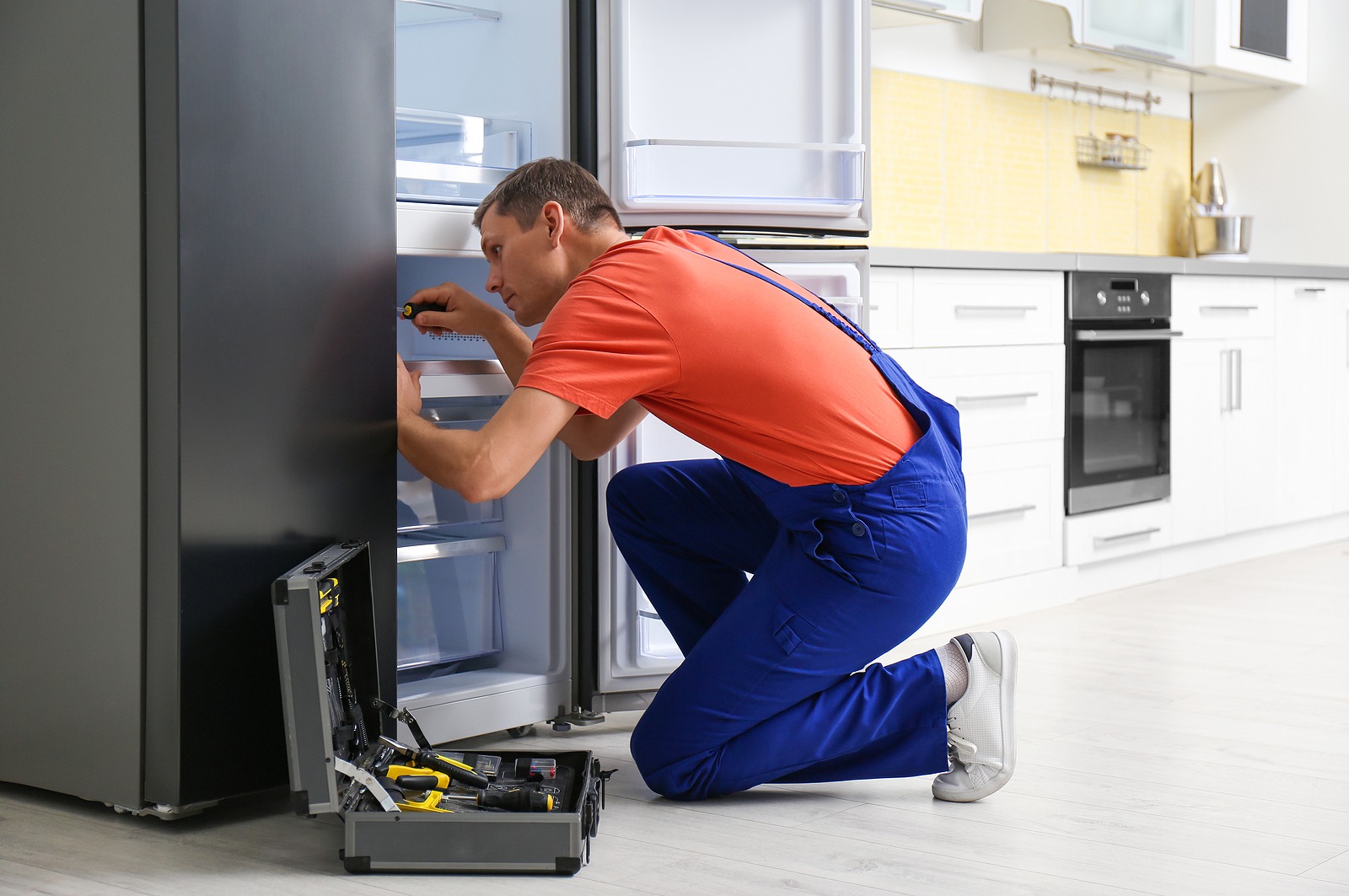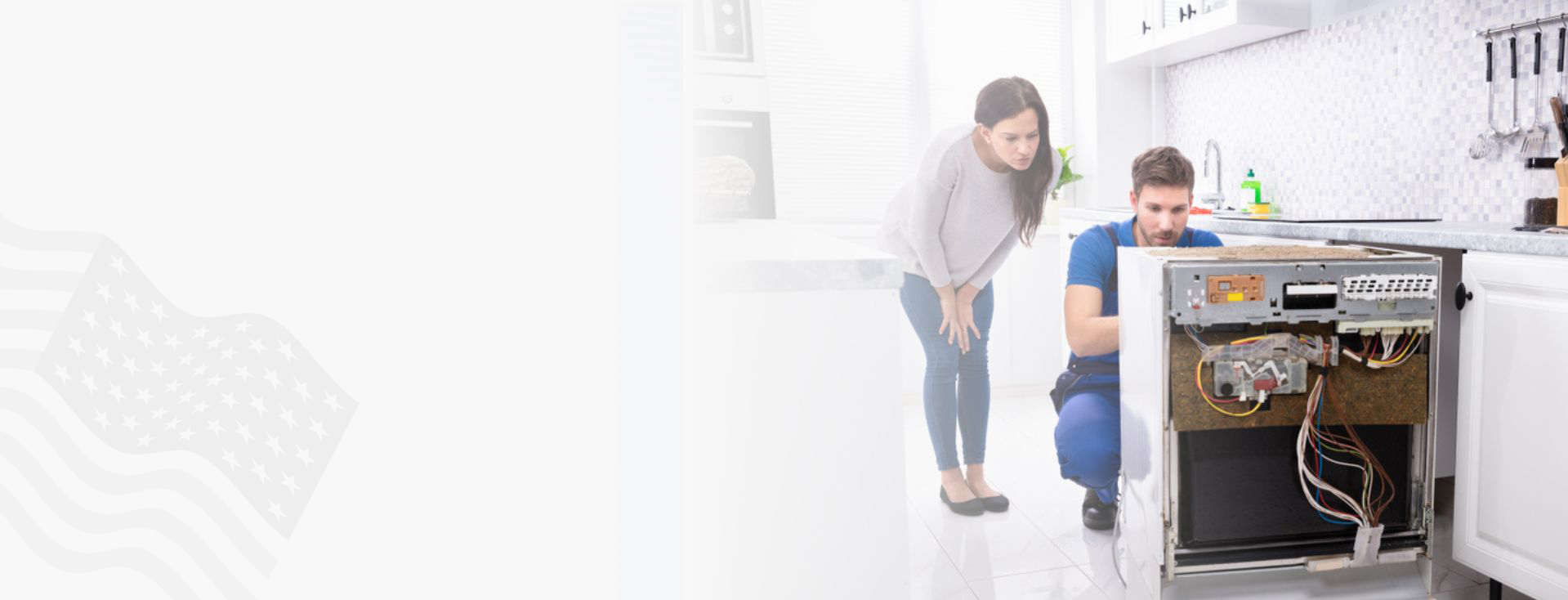How to Handle a Washer That Stops Draining – Dependable Refrigeration & Appliance Repair Service Washing Machine Repair
How to Handle a Washer That Stops Draining – Dependable Refrigeration & Appliance Repair Service Washing Machine Repair
Blog Article
The Ultimate Guide to Comprehending Home Appliance Repair Work in your home
When your refrigerator stops cooling down or your stove refuses to warmth, it can really feel overwhelming. Comprehending home appliance repair in the house can save you money and time. You'll discover to recognize symptoms, make use of necessary devices, and adhere to a systematic troubleshooting process. Before you start, there are critical safety and security preventative measures you require to take right into account. What are one of the most typical problems, and how can you repair them? Let's discover the fundamentals.
Typical Appliance Issues and Their Symptoms
When your home appliances start breaking down, it's important to identify the indicators beforehand. Disregarding them can result in bigger problems and pricey repair services. For circumstances, if your fridge isn't cooling down appropriately, you might discover warm places or condensation creating. This could show a falling short compressor or an obstructed vent.Your dishwasher may reveal issues via dirty meals or unusual noises during cycles. If you hear grinding or clanking, it's time to investigate.A cleaning device that will not spin or drain can leave you with soggy laundry, suggesting a blocked drain or a malfunctioning pump.Lastly, if your oven's temperature level seems off or it takes permanently to preheat, you may be managing a damaged thermostat. By remaining sharp to these signs, you can attend to issues before they escalate into significant fixings.
Important Devices for Device Repair Work
When you're dealing with device repairs in the house, having the right tools is important. Standard hand devices like screwdrivers and pliers will aid you dismantle and fix numerous appliances, while electrical testing devices ensure you're functioning securely with electrical wiring. Let's review what you need to begin on your repair trip.
Standard Hand Tools
Having the right tools is essential for efficient device repair service in the house. Beginning with a dependable screwdriver set, consisting of both flathead and Phillips kinds, as screws prevail in appliance setting up. Pliers are additionally vital; they assist with gripping, turning, and reducing cables or small elements. A set of needle-nose pliers can reach limited places easily. You'll need an excellent adjustable wrench for tightening or loosening up nuts and screws. An energy blade comes in handy for cutting with packaging or insulation. Lastly, do not forget a sturdy workbench or surface area to securely arrange your devices and components. With these basic hand devices, you'll be well-prepared to tackle most home appliance repair services that come your means.
Electric Screening Tools
Together with basic hand tools, electrical screening tools play a necessary duty in home appliance repair. These devices help you detect electrical issues and warranty home appliances operate securely. A multimeter is essential; it measures voltage, present, and resistance, allowing you to identify problems quickly. A non-contact voltage tester is an additional must-have, allowing you detect live cords without making direct call, enhancing your security. Clamp meters are fantastic for measuring existing flow in cords without separating them, conserving you time and initiative. In addition, circuit testers can swiftly examine if electrical outlets are working effectively. By utilizing these tools, you'll simplify your troubleshooting procedure and improve your repair work skills, making home appliance upkeep a lot easier.
Step-by-Step Guide to Diagnosing Device Issues
When your appliance acts up, it can be irritating, however detecting the problem doesn't have to be overwhelming. You'll learn to identify typical issues and apply efficient repairing methods. Let's go through the actions to obtain your device back in working order.
Usual Home Appliance Troubles

Fixing Techniques Explained

Fixing Major Cooking Area Home Appliances: A Closer Look
Have you ever before questioned how to deal with common issues with your kitchen area devices? Repairing significant kitchen appliances like refrigerators, stoves, and dish washers can be easier than you assume. Beginning by determining the trouble-- whether it's a fridge not cooling or an oven that won't warm. Usually, a simple reset or inspecting the power source can here solve the issue.For refrigerators, tidy the condenser coils and examine the door seals. If your stove's not home heating, inspect the burner and thermostat. Dishwashers might just require a clean filter or a reset to obtain them back in activity. Always disconnect the device before diving into repairs to assure your safety.Don' t neglect to speak with the customer manual for specific troubleshooting pointers connected to your model. With a little patience and the right tools, you can with confidence tackle appliance fixings and save cash while doing so!

Fixing Washing Appliances: Tips and Techniques
When your laundry appliances begin breaking down, it can feel overwhelming, but repairing them does not have to be a trouble. Start by examining the power supply. Confirm the appliance is plugged in and the electrical outlet is working. Next, check the door or cover button; a faulty button can prevent the maker from operating.For washers, if it's not rotating, check for unbalanced lots. Rearranging the clothes might address the concern. If your dryer isn't heating, tidy the dust filter and examine the vent for blockages.Listen for unusual noises; they can suggest a trouble. If your home appliance is leaking, examine the hose pipes for cracks or loose links. Document any mistake codes shown on electronic screens, as they can direct you in recognizing the problem. Lastly, speak with the individual handbook for details fixing tips associated to your model.
Safety Preventative Measures to Take During Repair works
Before you start any type of home appliance repairs, it's important to prioritize safety and security to avoid crashes or injuries. First, disconnect the appliance or shut off the breaker to assure no power reaches it while you work. Usage insulated tools to decrease the threat of electrical shock. Put on security goggles and handwear covers to safeguard on your own from sharp edges or debris (Lg Dryer repair near me Dependable Refrigeration & Appliance Repair Service).Make certain your office is tidy and well-lit, so you can see what you're doing. Maintain children and pet dogs far from the location to stay clear of interruptions and prospective risks. If you're dealing with gas devices, be additional mindful; check for leaks prior to proceeding.Take your time, and don't rush through repair services. If you really feel unpredictable regarding any action, it's better to stop and research than to guess. Adhering to these safety measures will assist produce a safer environment for your DIY appliance repair work task
When to Call an Expert for Assistance
How do you understand if it's time to hire a specialist for appliance fixings? If you have actually attempted fundamental troubleshooting without success, it's a clear sign. If your appliance still will not start or reveals unusual sounds after resetting it, don't be reluctant to seek expert help.When you discover leakages, smoke, or shedding scents, focus on security and call a professional immediately. These concerns can result in more substantial damage or present threats to your home.Also, if your appliance is under guarantee, calling a specialist is commonly the ideal course. They can ensure that repair work won't void your warranty, saving you money in the lengthy run.Finally, if you're uncertain or unpleasant with complex repairs, it's wise to leave it to the specialists. Bear in mind, taking on difficult concerns without the appropriate proficiency can cause pricey errors. Depend on a specialist when unsure!
Frequently Asked Questions
How Can I Protect Against Device Problems in the Future?
To avoid device troubles in the future, you need to perform normal maintenance, look for wear and tear, tidy filters, and avoid overloading. Remaining positive will help prolong their life-span and keep them running smoothly.
What Are one of the most Usual DIY Device Fixing Mistakes?
You might overlook safety and security preventative measures, miss repairing actions, or utilize inaccurate tools when attempting do it yourself appliance repairs. Hurrying the process or neglecting manufacturer guidelines can result in even more substantial concerns and pricey errors. Remain person and educated!
How Do I Know if a Part Demands Replacement?
You can inform if a part needs substitute by looking for unusual sounds, leaks, or inconsistent performance. If the appliance struggles to run correctly or shows noticeable damages, it's likely time for a replacement.
Can I Utilize Generic Parts for Home Appliance Fixes?
Yes, you can utilize generic parts for appliance repairs, yet determine they're suitable - Dependable Refrigeration & Appliance Repair Service Washing Machine Repair. Common parts may conserve you money, however they can impact efficiency or durability, so consider your alternatives thoroughly prior to choosing
What Warranties Cover Appliance Repair Works?
Most home appliance warranties cover fixings for making flaws, however they often exclude damages from misuse. Inspect your warranty terms meticulously, as some could call for utilizing qualified service technicians and initial components for protection to remain legitimate.
Report this page